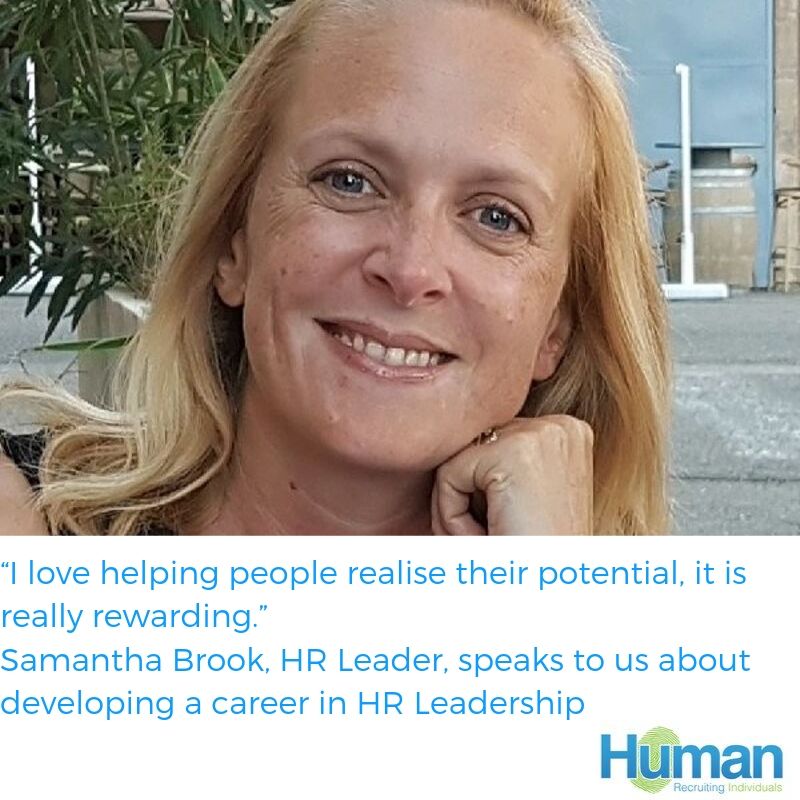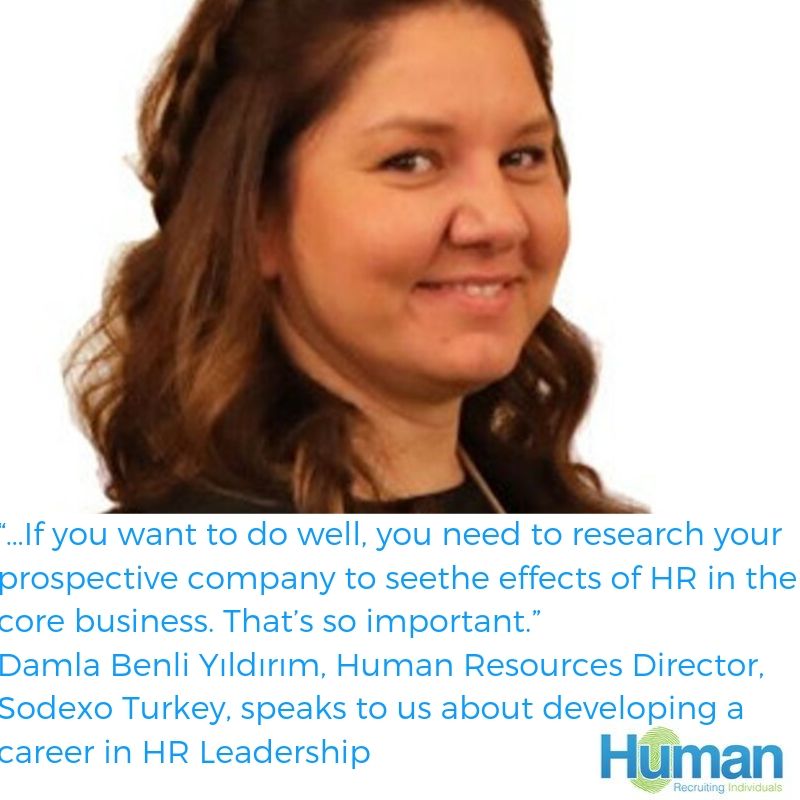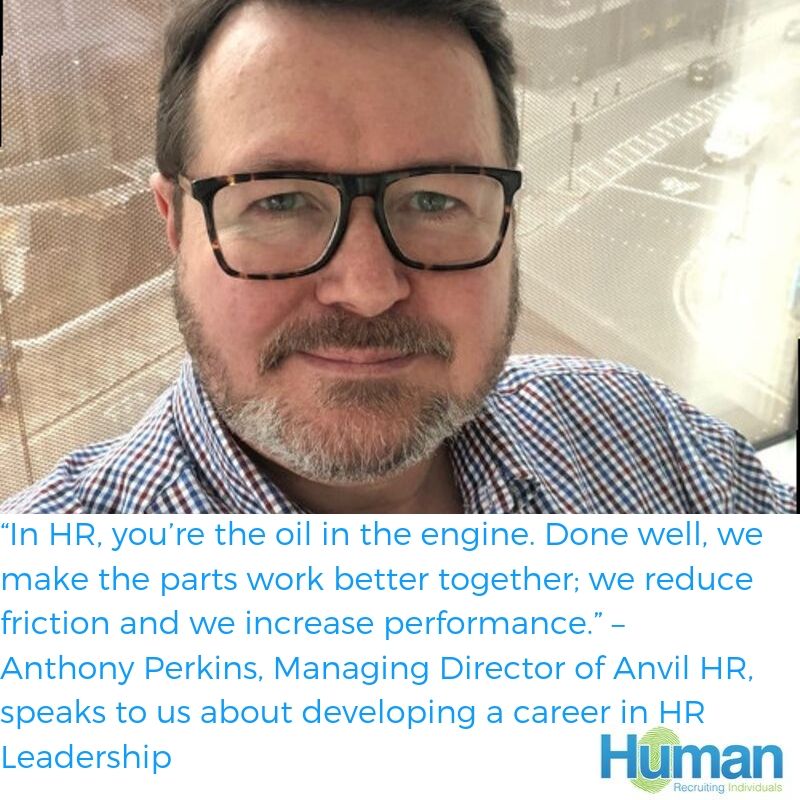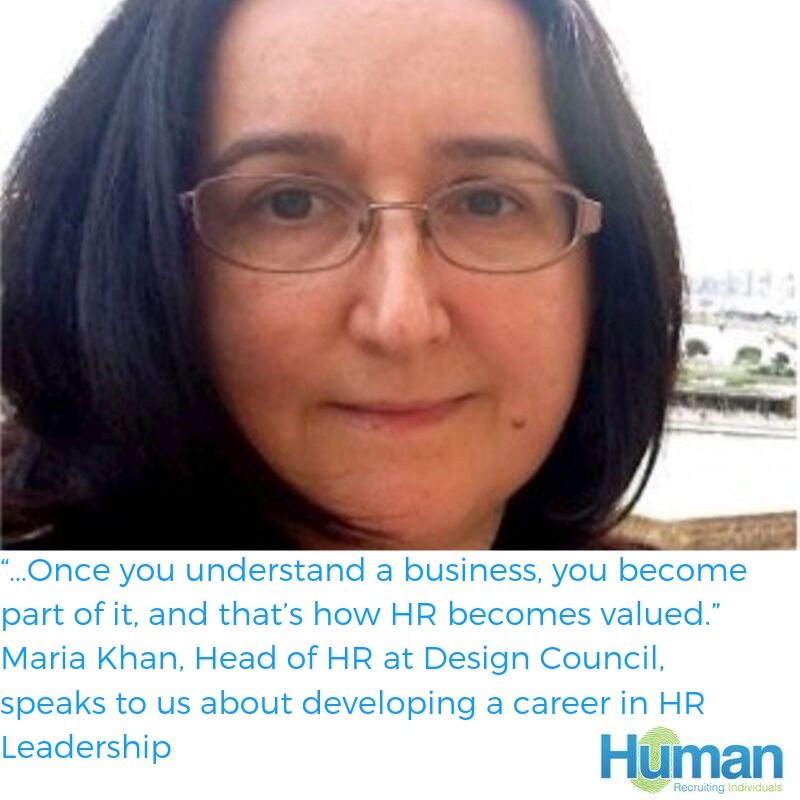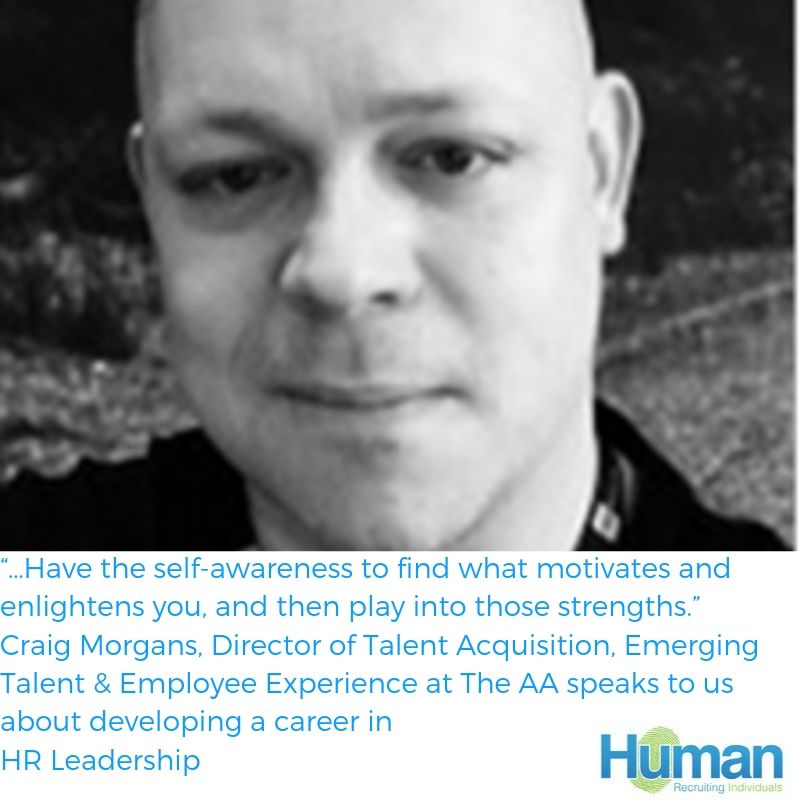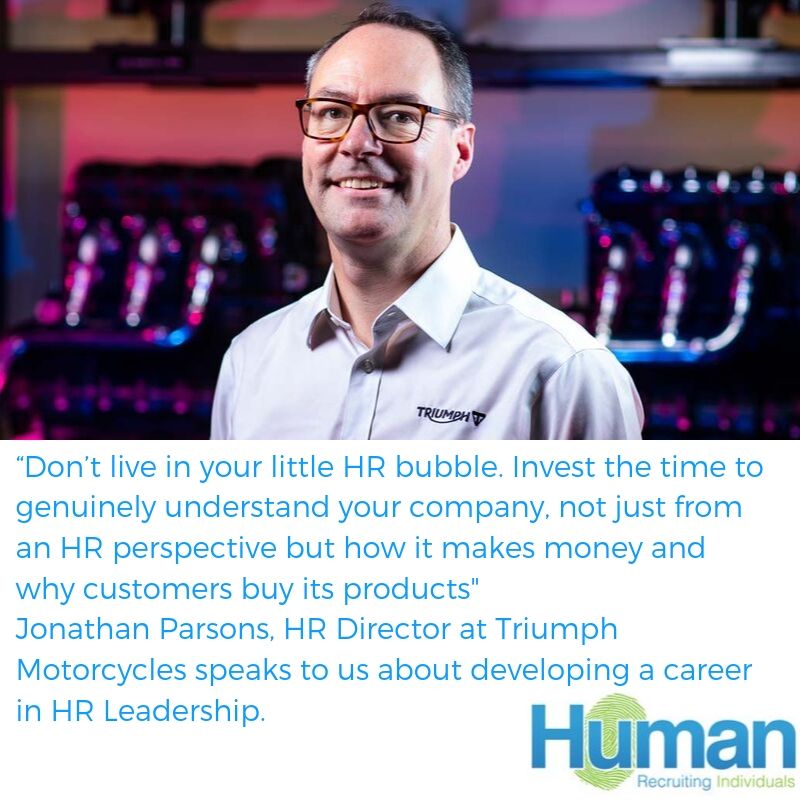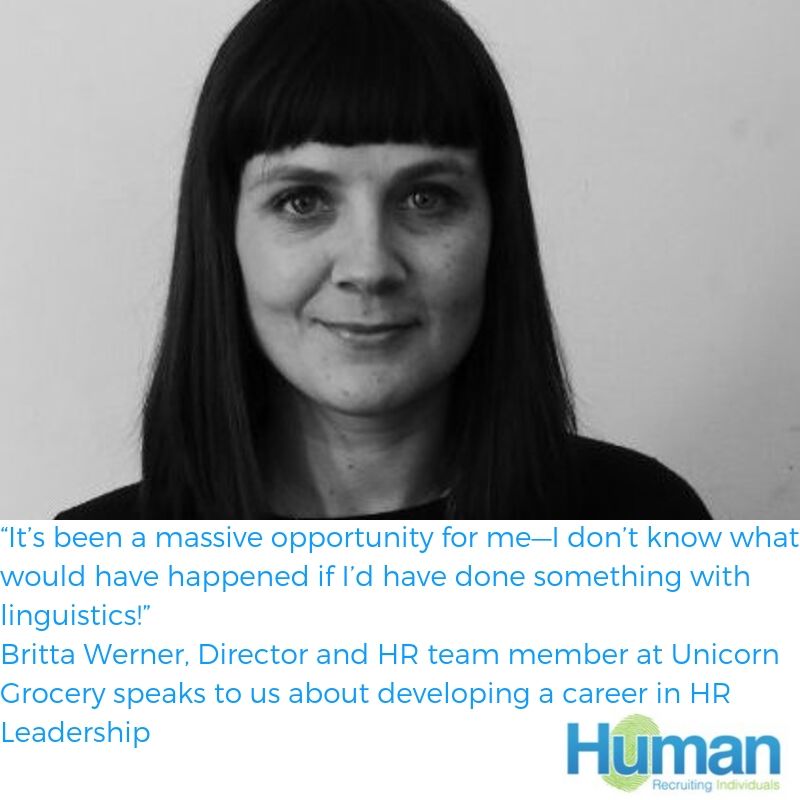“I love helping people realise their potential, it is really rewarding.”- Samantha Brook, HR Leader, speaks to us about developing a career in HR Leadership.
“I love helping people realise their potential, it is really rewarding.”- Samantha Brook, HR Leader, speaks to us about developing a career in HR Leadership. As part of our commitment to supporting candidates to develop fulfilling careers, we’ve invited some HR Leaders to share the secrets of their success. This week, we had a great conversation with Samantha Brook, an experienced HR Director who began her career as a Graduate Recruitment Officer at Bass Taverns Food & Restaurants before moving on to take a Recruitment Officer role at Endsleigh Insurance. After serving as National Recruitment Manager at Peacocks, Samantha embarked on a 15-year term at Croda, during which she took on roles as Group HR Advisor, Group HR Manager & Global CSR Coordinator, and Group Head of HR. In July 2014, she set up Tomorrow’s Future Limited, after which she transitioned to Drax Group, taking on roles as Head of Corporate HR, and most recently, Group People Director. Can you tell us how you got into HR and why? During my BSc in Managerial and Administrative Studies, I undertook an industrial placement year. Originally, I wanted to get into Marketing because I enjoyed studying consumer behaviour and didn’t enjoy the HR I’d covered during my studies. Bass Taverns took me on, and ultimately put me in Recruitment, tasking me with recruiting 50 Graduate trainee managers. So you could say I was looking at behaviour just in a different way. It was a great role, and I looked to go into Recruitment when I graduated, so I interviewed for a number of roles and took up the Recruitment Officer role at Endsleigh. That was the point where I started to develop a passion for orienting HR’s core values in order to treat people as equitably and respectfully as possible. I enjoyed finding what it was that drew people together and matching that up with processes or systems that existed within the company. It was during my time here that I self-funded my CIPD (or IPD as it was in those days). After a year at Endsleigh, a role opened up at Peacocks Stores, and I decided to go for it. The company saw phenomenal growth while I was there, opening up 100 stores in a year, so we ran a nationwide recruiting operation to bring store managers into the business. It was incredibly fast-moving, but ultimately spending 5 nights a week away from home and traveling 1000 miles a week just wasn’t sustainable. A job came up at Croda International PLC, a global speciality chemicals company, and the fact that it was in a new industry and local really appealed to me, so I went for it. During my early years there the company went through significant amounts of divestment and I spent most of my mid-to-late 20s running outplacement programmes for colleagues on our manufacturing sites. I loved building relationships and helping people find their next role, it was really rewarding. While I was there, I had a number of opportunities to progress my career and achieved an MSc in Career Management. After Croda aquired part of ICI, the business underwent a complete cultural shift and after 7 years it was like working for a completely different company. This brought a whole host of new challenges and opportunities both in the UK and overseas. Working across borders for the rest of my time at Croda really helped develop my adaptability and gave me a greater understanding of what motivates people at work. On leaving Croda I set up on my own, working in talent and leadership development which I enjoyed, but I missed working in a team and being able to get my arms around the whole of a HR function and the people processes in a business, so I went for a role with Drax Group PLC, yet again a change in Industry – this time the Energy Industry. Not long after I joined the organisation we acquired a business with 1000 people this meant areas of integration, change and engagement were all high on the agenda. The role at Drax involved a huge HR transformation, as things were still at the ‘Personnel’ stage in places. Through growing the team we were able to introduce a new behaviour framework, new rewards and bonus structures, and improved the performance, learning, and career management processes. Can you tell me about the prevalent themes and challenges that you’re seeing across the HR sector? I think our two biggest challenges are the increased importance of GDPR and increasing awareness and incidences of mental health issues in business. With GDPR, as soon as you get a Subject Access Request, you need to be able to respond to it in line with the regulations, and not everyone is ready for that. I also think that when you get too caught up in having the proper data, you run the risk of forgetting what’s important—the people. So getting our own house in order as a function is paramount. We need to find the balance between the importance of strong business partnering and a compliance focus to being a profession that genuinely cares about people. AI is definitely a key theme. In my mind, technology will change our jobs by chipping away at HR tasks so the HR team themselves can focus on helping people learn and develop, because that’s what adds the most value—it’s really exciting when you step back and look at it that way and consider how it will give us access to good, meaningful data and better systems whilst freeing up time. That said, I think HR as a whole needs to be wary of digitising everything and losing the human element, as ‘pressing 1 for HR advice’ won’t cut it in real moments of need. It’s a fascinating challenge. Industry-wise, I would say that the biggest challenge the energy sector is facing is that the pace of change is relentless. The industry is thinking about its future and succession and talent

